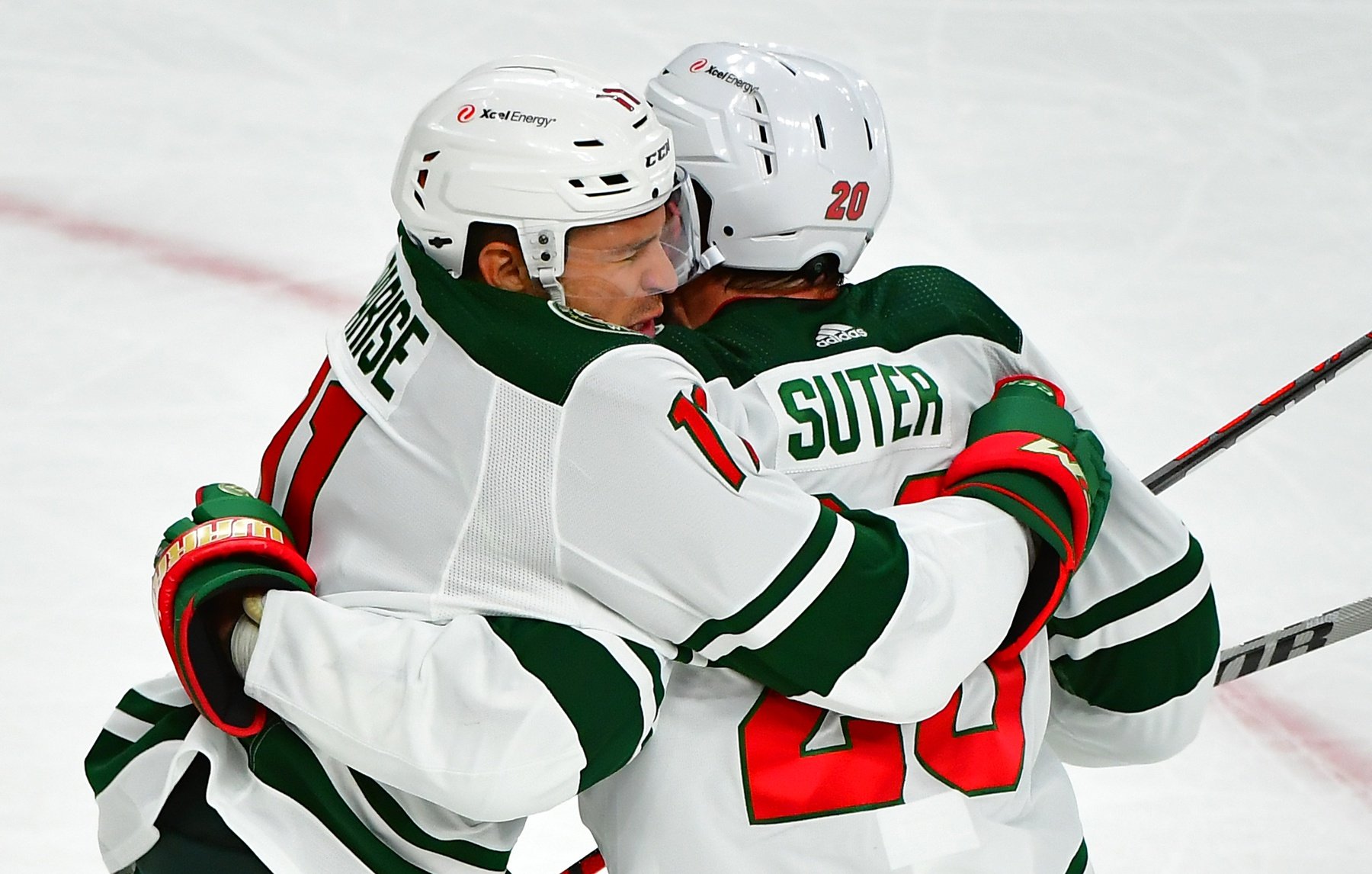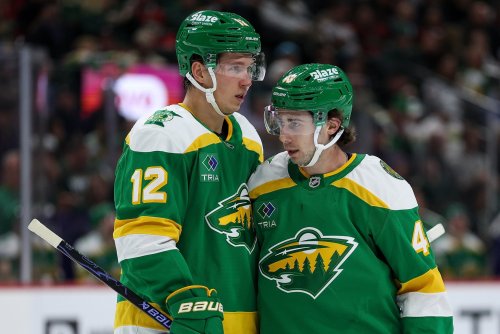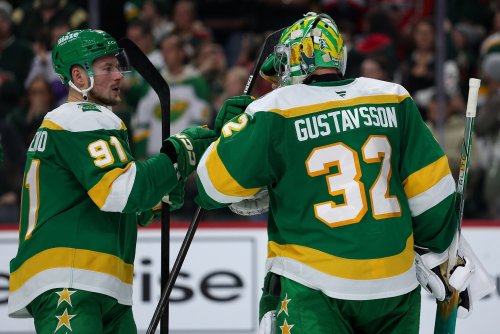
Looking back at it all, Barry Melrose declaring the Minnesota Wild as the favorite to win the Stanley Cup in 2013 might go down as one of the most hilariously bad takes of the 2010s. You can't blame him, though. Everyone was shocked when the Wild — a team led by a rookie head coach with a defensive-minded system that only had a few NHL-ready prospects to lure free agents — somehow put together an enticing enough package to sign both Zach Parise and Ryan Suter. There was so much excitement that the mulleted long-time ESPN hockey analyst got caught up in it.
But Minnesota had a lot of promise for the future. Both Parise and Suter were supposed to supplement a young core of Mikael Granlund, Charlie Coyle, and Jonas Brodin. Granlund was coming off his rise to Finnish stardom, where he had a postage stamp made of his amazing lacrosse-style goal against Team Russia in the World Championships. Coyle was the big-bodied winger who could potentially play center and was the Wild’s first hope for a true power forward. And it was also a year after Minnesota's improbable rise to the top of the league in December, only for them to fall completely out of the playoff picture once the calendar switched over to January.
There was excitement over what the future would hold. On the morning of July 4th, 2012, we found out that the appeal of playing close to home was strong enough to lure not one but two big free agents. We found out that morning that the NHL still used fax machines once the paperwork hit the league office with Parise and Suter’s signature on them, making the two matching $98 million deals official. The Wild sold season tickets in droves. The lower bowl of the Xcel Energy Center was packed for the Wild’s annual prospect development camp that summer. People were showing up to see the future of the franchise because there were stars that would guide the young group to the apex of the NHL.
Nine years later, we’re now versed in cap recapture, long-term injured reserve (LTIR), and aging curves. The Parise and Suter contracts were immediately penalized by cap recapture, meaning their cap hits would not come off the books if they retired, following a half-season lockout by the league owners. Without the ability to alleviate Parise and Suter's cap hits via retirement, fans looked at ways around the eventual, but certain, drop-off the two players would experience once they reached their late 30s. A common theory was that they could use the LTIR loophole to get around the cap recapture.
Here we sit after three GMs, four coaches, and a whole new crop of young talent, and Parise and Suter do not have their names etched into the side of the Stanley Cup. Instead, the Parise-Suter era had officially come to a close with a resounding thud as both players had their matching contracts bought out with four years left on their 13-year deals.
The problem was never that the Wild signed Parise and Suter. Looking back at the circumstances of the signings, it made sense. Minnesota’s long sellout streak had snapped, and Minnesota's only star in franchise history had left via free agency a couple of years before, with no one coming in to fill the void. The Wild needed to inject some life into the team and reclaim some interest from a market that was already beginning to wane. It made financial sense for the front office and ownership of a team that considers itself to be in one of the top American hockey markets.
The problem was the timing of those signings. With the advantage of hindsight, bringing in two established guys to play under rookie head coach Mike Yeo was a recipe for disaster. And while they won two series wins under Yeo, it became evident that he had issues managing the egos in the room. He was in way over his head.
Maybe it was questionable to add the two former captains to a locker room that already had a strong captain presence in Mikko Koivu. The “A” patch on their left shoulders during the introductory press conference was even a surprise to Parise. The two players were granted such status in the locker room, and they hadn’t even touched the ice with their new team.
Before long, the Wild moved on from Yeo after the team got sick of the midseason swoons. The ship almost always would get righted, usually after the GM swung emergency trades to rescue the team. The pressure to stay competitive with the two high-priced players on the roster was evident. Fletcher repeatedly acquired a player or two at the trade deadline to help get his team over the hump, and he also tried to improve the depth without upsetting the balance in the locker room.
Minnesota went through two head coaches, one interim head coach, and two GMs before all was said and done. Bill Guerin chose not to deal with the ramifications of the two players on the roster any longer. Rather than playing out the string, he opted to cut ties completely. In the end, the Parise-Suter era was not a failure because Minnesota went out looking to sign them. It's not their fault that it didn’t end with tremendous success. Looking back, it was the Wild that failed by putting all their eggs in the Parise-Suter basket without making significant changes to the talent pool around them.
A lot of time, energy, and money was spent to make the Wild better than they really were. Granlund didn’t take off until he was moved to the wing. Coyle was yo-yo’d up and down the lineup and from wing to center. Brodin turned into a first-pair-caliber defenseman, but he was not an ideal match with Suter because he was left-handed. Parise and Suter were signed to supplement the Wild’s up-and-coming youth movement at the time. When that youth didn’t pan out, the window was going to close — and the experiment would end too.
The Wild were right to sign both players. Spending money to compete is not the wrong mentality. The Wild just overcalculated or misevaluated what the two guys could do for the team on the ice. They weren't alone in that thinking, as evidenced by Melrose's take.
Think you could write a story like this? Hockey Wilderness wants you to develop your voice, find an audience, and we'll pay you to do it. Just fill out this form.







Recommended Comments
There are no comments to display.
Join the conversation
You can post now and register later. If you have an account, sign in now to post with your account.
Note: Your post will require moderator approval before it will be visible.